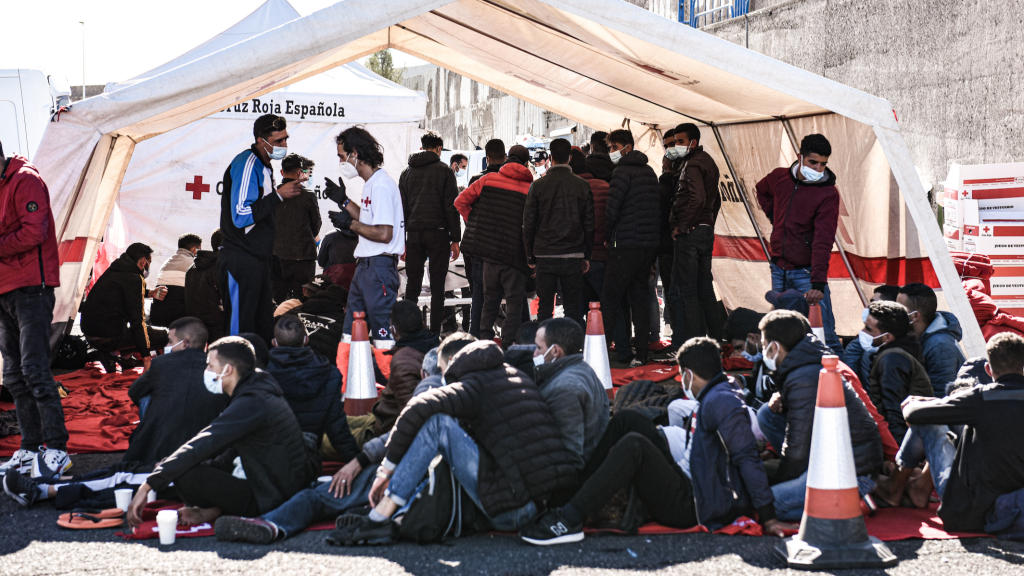In May 2021, Morocco turned a blind eye to the passage of almost 10,000 people to the Spanish enclave of Ceuta in 48 hours, thus fuelling a new diplomatic crisis between the two countries. Migration is increasingly being used by governments in the MENA region to instrumentalise EU Member States’ foreign policies.
This ‘blackmailing’ approach to bilateral and multilateral cooperation on migration results from externalisation policies and the conditionality approach implemented by the EU and Member States. By using migrants and refugees as “tools” of political pressure, origin and transit countries negotiate economic and geopolitical benefits with EU and Member States without worrying about the loss of human lives, nor about fundamental rights violations.
This logic of conditionality has been shaped through budgets structured around the external dimension of migration: the EU Emergency Trust Fund (EUTF) in 2015 and the Neighbourhood, Development and International Cooperation Instrument (NDICI-Global Europe) from 2021 push African countries to instrumentalise the departure of migrants in their own interests.
Similar approach across the Mediterranean
Following the huge increase in arrivals in the Canary Islands since August 2020 (and a sharp increase in the number of deaths), Morocco has demanded more funds from the EU for border management. Indeed, Morocco’s cooperation with the EU on migration focuses disproportionately on border management and combating irregular migration, instead of promoting protection and rights. For example, of the total EUR 238 million drawn from the EU Emergency Trust Fund for Africa in Morocco, 190 million are allocated for border control-related projects, while only 28.3 million for programmes related to protection and rights.
Since 2016, Turkey has received EUR 6 billion through the EU Facility for Refugees in Turkey, but nevertheless regularly threatens the EU to use migrants to leverage more EU support.
The same applies in Libya where Italy has been providing funding, training and equipment to the “Libyan Coast Guard” to prevent departures, intercept migrants at sea and return them. As highlighted in the EU Pact on Migration, the EU is also planning to use the new European Peace Facility to possibly provide the “Libyan Coast Guard” with more assets, such as patrol boats and planes. These decisions have led to more than 12,000 pushbacks by proxy since the beginning of 2021, thus indicating an interest on the part of the Libyan authorities to be recognised as playing a leading role in the difficult Mediterranean skirmish.
It is high time that the EU and Member States stop externalising their protection responsibilities and stop imposing a conditionality-based approach that forces migrants to risk their lives in dangerous journeys by land and sea.

